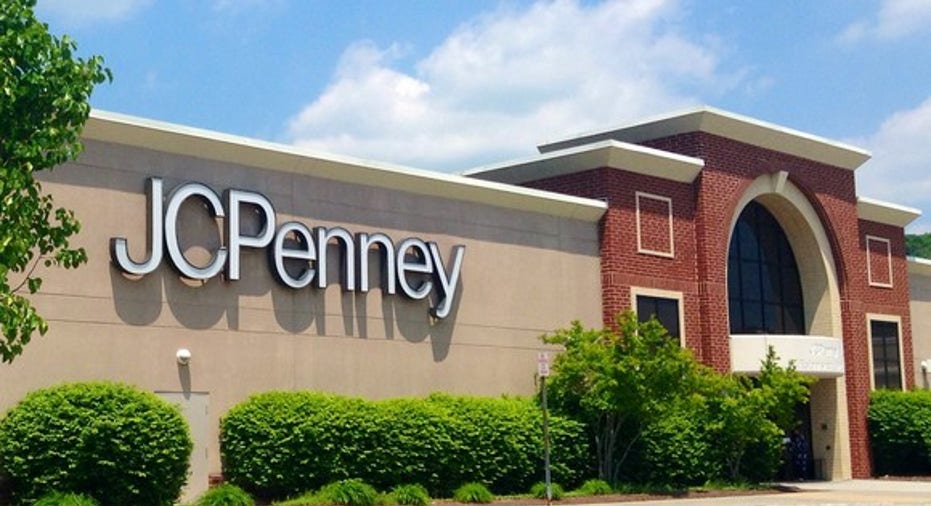One Big Problem With J.C. Penney's Turnaround Plan

Image Source: Mike Mozart via Flickr.
Department store J.C. Penney (NYSE: JCP)has come a long way since stumbling dramatically under the leadership of former CEO Ron Johnson. Sales have been growing consistently, costs have been slashed, and capital spending has been kept in check in an effort to preserve cash. J.C. Penney is still posting losses, but the company is far healthier today than it was just a few years ago.
With the business successfully stabilized, new CEO Marvin Ellison recently unveiled his plan to return the company to profitability. The goals are ambitious, with Ellison expecting to grow comparable sales by 3% annually through 2019, improve gross margin by 75 to 100 basis points, reduce SG&A expenses as a percentage of revenue by 215 to 240 basis points, and produce between $450 million and $500 million of net income by 2019.
Last year, J.C. Penney posted a net loss of $513 million.
J.C. Penney is implementing numerous initiatives in an effort to drive this $1 billion swing in earnings. Omni-channel will be a big focus, with the company now shipping online orders directly from 250 of its stores. Stocking special sizes will help appeal to a broader customer base, and the company's move into major appliances will create additional revenue from a category that is expected to grow 32% by 2020.
While most of this turnaround strategy makes sense, there's one item that could backfire in a big way. J.C. Penney plans to increase its dependence on its private-label offerings, bringing penetration up to 65% to 70% by 2019 by eschewing certain national brands. This may seem like a good idea on the surface, with private-label merchandise generally producing higher gross margins compared to brand-name items, but fellow department store Kohl's (NYSE: KSS) tried the same thing a few years ago -- it did not go well.
Too much of a good thing
In 2005, about 30% of Kohl's sales came from private and exclusive merchandise that could only be purchased at its stores. Private-label brands allow a retailer to differentiate itself while offering products that typically sell for lower prices and generate higher gross margins than national brands. For stores that focus on providing value for shoppers, including Kohl's and J.C. Penney, private-label brands play an important role.
By 2014, private-label penetration at Kohl's had reached 52%. That turned out to be too high, with the company admitting that the decreased presence of national brands had hurt traffic and sales. Comparable sales sank 1.2% in 2013 and 0.3% in 2014, due, in part, to Kohl's overdependence on private-label merchandise.
In an earnings conference call in late 2014, CFO Wesley McDonald summed up the problem:"Once they start shopping Kohl's more frequently, they understand the value of our private and exclusive brands. But to get them in the door, it's really with the national brands."
Kohl's long-term strategy, launched in 2014, included a shift back toward national brands. CEO Keven Mansell, in an interview with Fortune, said that the company needed to find a more balanced mix, admitting that "we have slipped with consumers in the perception of Kohl's as a place to get great national brands."
Since then, Kohl's has been adding more household names to its stores, including a recent deal to stock Under Armour products starting next year. With many retailers struggling with weak foot traffic, having popular brands in stock is critical. Kohl's results have been mixed as of late, but the situation would be worse if the company hadn't reversed course.
A risky bet
About 52% of J.C. Penney's sales came from private brands in 2015(excluding Sephora), leaving plenty of work to do in order to get up to that 70% guidance. The company's assumptions about gross margin increases in the next few years depend on this private-label strategy paying off. But if Kohl's experience is any indication, J.C. Penney hitting its targets will be easier said than done.
The additional 18% of sales that J.C. Penney will attempt to transition to private-label merchandise represents more than $2 billion of revenue. The worst-case scenario is a repeat of Kohl's private-label experiment, with customers unable to find their preferred brands and ultimately shopping elsewhere. It's hard to say what the optimal mix is for J.C. Penney, but I'm willing to bet that 70% private label brands is just too high.
A secret billion-dollar stock opportunity The world's biggest tech company forgot to show you something, but a few Wall Street analysts and the Fool didn't miss a beat: There's a small company that's powering their brand-new gadgets and the coming revolution in technology. And we think its stock price has nearly unlimited room to run for early in-the-know investors! To be one of them, just click here.
Timothy Green owns shares of Kohl's. The Motley Fool owns shares of and recommends Under Armour (A Shares). Try any of our Foolish newsletter services free for 30 days. We Fools may not all hold the same opinions, but we all believe that considering a diverse range of insights makes us better investors. The Motley Fool has a disclosure policy.



















